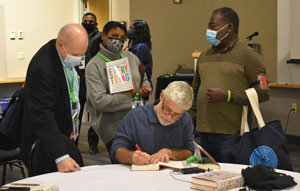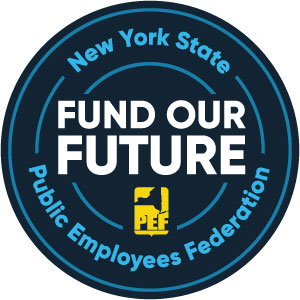
After going remote during the height of the pandemic, colleges began bringing students back to dormitories for the fall 2021 session. The plan was to keep dorm capacity down to prevent the spread of COVID-19 by only bringing back a portion of the student body.
Imagine being told you can’t do that.
Privatization of public services has many pitfalls and the dorm capacity plans at the University System of Georgia and Wayne State ran up against the private contractor that built and managed dormitory housing for the schools.
Ahead of the fall 2020 session, the colleges received communication from the private corporation Corvias “reminding them of the debt the company took on under privatized housing agreements and asserting that the universities don’t have the ‘unilateral right’ to put policies in place that would limit the number of students who can occupy student housing or to reduce housing fees under the P3 agreements,” according to Inside Higher Ed.

Donald Cohen, co-author with Allen Mikaelian of The Privatization of Everything, an in-depth look at privatization of the public sector across the country, said this is just one recent story that highlights the dangers of privatizing public services.
“The university is responsible for the education and health of its students,” Cohen said. “But here, it is legally prohibited by a contract from protecting the health of its students.”
Chicago in the early 2000s entered into a contract to sell off 36,000 parking meters for $1.1 billion up front – which seemed like a win-win considering it was the height of the recession and the city needed cash.
The pitfall?
For 75 years, the city must now buy back spaces or compensate the private corporation if they want to close a street for a fair, create a bus or bike lane, or restructure road infrastructure to best accommodate residents. The corporation, Chicago Parking Meters LLC, a venture that includes Wall Street investment house Morgan Stanley, Alliance Capital Partners and the Abu Dhabi Investment Authority, also drastically increased parking rates.
“That means it costs a lot of money to do things you should be able to do,” Cohen said. “You probably won’t do a lot of things because of that.” Yet the corporation stands to earn back their money in 15 years, leaving the remainder of the 75-year contract profit. That profit won’t do the public any good.
Cohen has been an organizer for decades, working on human rights, universal health care and as political director for the labor council in San Diego.
“I ran campaigns and represented unions on a lot of issues in state and local politics,” Cohen said. “There were vicious attacks on public sector unions around the country to eliminate them. Public sector unions were, as the biggest piece of the labor movement at that time, right in the sights of conservatives and big corporations and one of the prime ways to eliminate them was to privatize, outsource, contract out work, essentially make government small and bust unions.
“We believe in public services,” he said. “I did a lot of reading in the mid-90s about what conservatives did to turn people away from believing in government and public solutions to our problems. That wasn’t an accident. Conservatives and big corporations wanted government out of the way.”
Working with unions fighting privatization at the local level, Cohen realized they lacked a resource center, a place for people around the country to go who were fighting the same battle. In 1995, to remedy that, In the Public Interest, a comprehensive research and advocacy center, was born.
When privatization fails the public
In The Privatization of Everything, Cohen details shocking cases of privatization and the damage done to the public good.
One such failure involved a for-profit food production auditor, the poisoning of nearly 2,000 Americans and the recall of more than a billion eggs.
In 2010, AIB International performed an inspection at an Iowa egg farm and issued the farm a “Recognition of Achievement” for fulfilling safety standards. After a nationwide salmonella outbreak was traced back to the farm by the Centers for Disease Control, the true state of the farm was discovered.
Piles of chicken manure, rising up to eight feet high; rodent burrows and feces; and live and dead maggots everywhere.
How did the farm pass inspection? It passed because the farm was the for-profit inspector’s “client” and only granted inspectors access to specific areas. Food and Drug Administration inspectors would not have been handcuffed by such parameters.
“This problem is systemic,” Cohen writes in the book. “It’s not about human error; it’s a function of privatization… AIB sees the farms it inspects as clients. This is what happens when the public gives up control. The public is no longer the client.”
What about when Texas privatized medical transportation?
The federal government requires transportation programs for states to receive Medicaid funds. Texas chose to grant regional monopolies and pay set rates to contractors that provide rides in a given area, Cohen writes in the book.
“The state could then step back almost entirely and simply write checks,” he wrote. The result? The program served fewer people, cost more and only got progressively worse. The book quotes the Houston Chronicle: “The number of Medicaid recipients using the program has dropped from 350,000 to 150,000, the number of substantiated complaints has doubled, administrative costs have quadrupled and the overall per-ride cost to the public has nearly tripled.”
Executive salaries went from 11 percent of program costs to 48 percent.
“Every time a politician hands public health care programs over to private-sector profiteering, it creates a greater burden on those least able to afford it,” Cohen writes.
How do we fight privatization?
Stopping privatization before it happens is the key to fighting back.
“There may be some escape clauses, but it’s far better to stop it before it happens,” Cohen said. “In contracts, a deal’s a deal.”
Long-term contracts may seem like the obvious target of public sector union advocacy, but short-term projects and contracts can be just as dangerous.
“For shorter term contracts, like prisons, which can be 3, 4 or 5 years, they will just bid for it again at the end of the term,” Cohen said. “Basically, they’ll get it again if nothing really bad happens. Short-term can become long-term. If there is a renewal and we organize, you can bring it back inside.”
The most important role of unions and members is eyes on the ground.
“Knowing early that something is being looked at for outsourcing is vital,” Cohen said. “Often it’s people working there who hear about it first. They might see consultants walking around looking at things. PEF members are the most important people to do that. Once you hear a rumor or see something, you have to let others know and begin efforts to stop it.”
Cohen said sharing details of the dedicated work of public employees is the best offense against arguments for privatization.
“PEF members do really important things for the people of New York every day and most residents don’t know what they do,” Cohen said. “Because we are in this anti-government environment, they think they are all lazy and inefficient. That’s what people believe.
“It’s really important for members of PEF and all public sector workers to tell people what they do at their job,” he said. “Tell stories about what you’ve done to help New Yorkers. I urge people not to simply say, ‘I help  people every day by providing mental health services.’ Say, there was this person in trouble and this is how I helped that person get back on their feet and access the services they needed.”
people every day by providing mental health services.’ Say, there was this person in trouble and this is how I helped that person get back on their feet and access the services they needed.”
What is your union doing?
New York State Fund Our Future is a coalition of union and community leaders committed to making the case for reshaping government in our public interest. PEF needs all the participation it can get from members to make that case. Visit the Fund Our Future website for more information.

